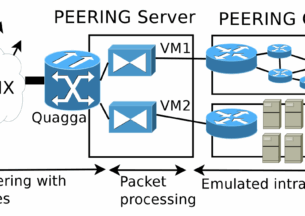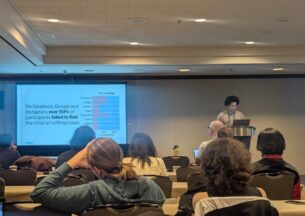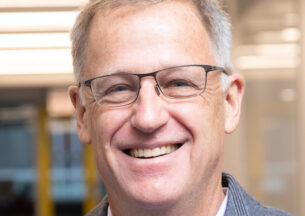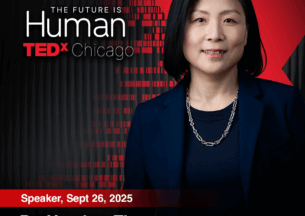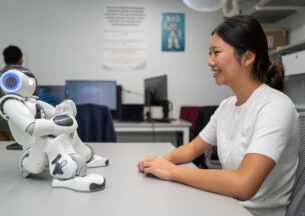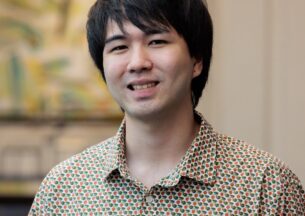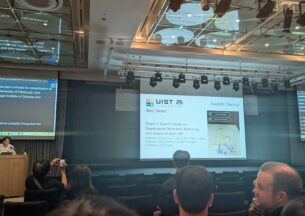The Climate App Designed to Tackle Chatham’s Flooding Crisis
Sitting in between two water reclamation sites, Chatham, located in the South side of Chicago, is a low-lying neighborhood susceptible to high flooding. As climate change gets increasingly severe, Chatham is one of the many neighborhoods bearing the brunt of the consequences. Recently, a study from the Center for Neighborhood Technology found the South Side neighborhood had more National Flood Insurance Program claims than the nearby Calumet Region and all of Cook County. Scientists and citizens alike seek to solve this problem, yet more avenues are needed for community members to take action to address the flooding and understand why it occurs.
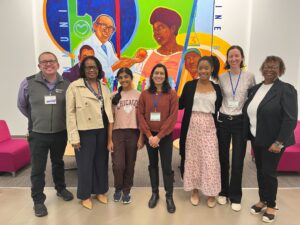 The Community Research on Climate and Urban Science (CROCUS) initiative, led by Argonne National Laboratory, was granted $25 million in funding by the US Department of Energy to study microclimates and flooding in urban areas like Chatham. In collaboration with local organizations like the Greater Chatham Initiative, the scientists hope to better understand the unique solutions communities might need, but there is limited capacity for the two parties to communicate their needs to each other. The Amyoli Internet Research (AIR) lab in the University of Chicago’s Department of Computer Science, directed by Associate Professor Marshini Chetty, sought to bridge the gap between scientists and the community.
The Community Research on Climate and Urban Science (CROCUS) initiative, led by Argonne National Laboratory, was granted $25 million in funding by the US Department of Energy to study microclimates and flooding in urban areas like Chatham. In collaboration with local organizations like the Greater Chatham Initiative, the scientists hope to better understand the unique solutions communities might need, but there is limited capacity for the two parties to communicate their needs to each other. The Amyoli Internet Research (AIR) lab in the University of Chicago’s Department of Computer Science, directed by Associate Professor Marshini Chetty, sought to bridge the gap between scientists and the community.
Kelly Wagman, a fourth year Ph.D. student in the AIR lab, is leading the design of a climate app that would enable the community and the scientists to communicate more effectively with each other. Through communications with scientists and two round-table discussions with residents through the Greater Chatham Initiative, Wagman and two undergraduates, Kanchan Naik and Madison Vanderbilt, worked together to build several mock ups of ideas based on their feedback. At the second workshop, residents voted on which they liked best.
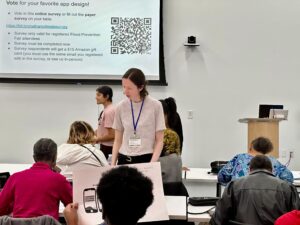 “What came out of that is a flood reporting tool where residents can report basement or street flooding that will show up on a map that other people can see in the community,” Wagman said. “This will provide the community with a way to have a local data set about flooding and share real time updates to 311 or their Aldermen.”
“What came out of that is a flood reporting tool where residents can report basement or street flooding that will show up on a map that other people can see in the community,” Wagman said. “This will provide the community with a way to have a local data set about flooding and share real time updates to 311 or their Aldermen.”
In addition to benefiting the residents of Chatham, this app also aligns with the scientists’ goals. While the community will own the data, the scientists will be able to, with the community’s consent, take anonymous data from the app. The data would be overlaid over their own measurements, using tools such as rain gauges to get a human impact layer on the data that will make their models and AI simulations more accurate.
“One of the tensions I’ve noticed is that science likes to have global, generalizable outputs, whereas communities are looking for very localized, direct benefit,” Wagman remarked. “The scientists have worked very hard to engage with the community, and the community has been really great about also engaging with the scientists. This is a different model of science than people are used to, but we’re figuring it out.”
Residents were also interested in educational resources and gaining a greater understanding of what scientists were doing with their data. To that end, Wagman hopes to also display results from the scientists’ research in the app as a way of disseminating information and increasing awareness. She hopes that in this manner, people are able to understand how community and citizen science, and their contributions specifically, help to inform the research.
This project is one of three that make up Wagman’s Ph.D. dissertation. She is planning to defend her thesis and graduate in the spring quarter.
“It’s important to note that, especially when working with a community partner, you don’t want to just drop in and then leave,” Wagman said. “We’ve had discussions from the beginning to inform them that I’m going to graduate. I can’t support this particular app forever, but I definitely want to make sure we figure out a way to hand it off. If the community is interested in keeping it running, we’ll make sure to figure out a sustainable strategy to make that happen.”
This project is generously supported by the UChicago Mansueto Institute for Urban Innovation and a UChicago Big Ideas Generator (BIG) seed grant.


